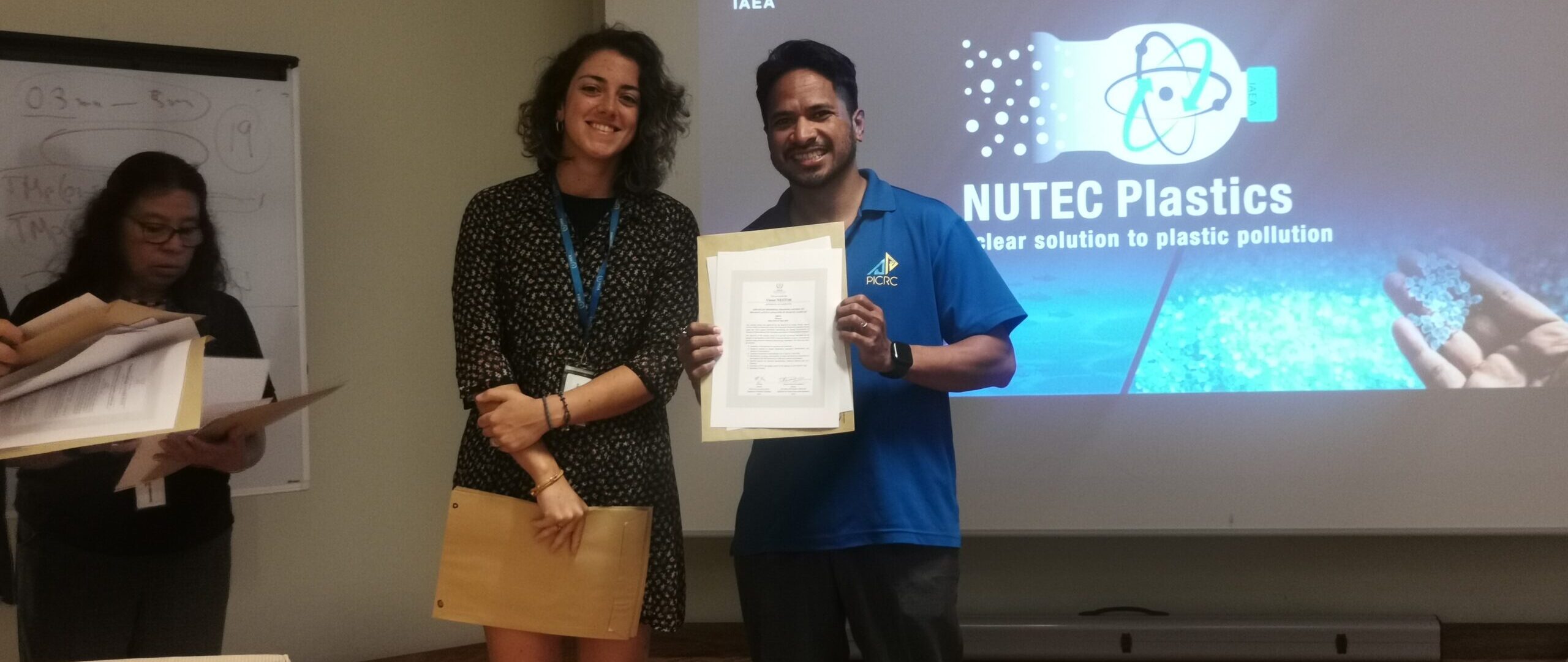- PICRC staff
- Research
PICRC Researcher Attends Flagship Microplastic Course in Monaco
Over three weeks in June, Researcher, Victor Nestor from the Palau International Coral Reef Center (PICRC) attended the Advanced Regional Training Course on Microplastic Analysis in Marine Samples. This course was hosted by the International Atomic Energy Agency (IAEA) and took place in Monaco. This is a flagship initiative by the IAEA to help unite countries and partners to fight plastic pollution both at the source, and where its deposited.
Microplastics are plastics that are smaller than 5mm in size and pose a large threat to marine eco-systems world-wide, including the vast coral reefs of Palau. Monitoring and analysis of micro-plastics is important to understand long term trends and distribution and its prevalence in marine food-webs.
Through the course, Victor gained an understanding of spectroscopy, a new technology used to detect microplastics. This included learning standardised protocols on how to sample and prepare microplastics for analysis and identifying microplastics using various spectrometers. Victor gained insightful knowledge about the important role technology plays in reducing the prevalence of microplastics and endeavors to start monitoring micro-plastics in Palau.
While microplastics are studied across the globe, monitoring methods are varied which makes results difficult to compare. “Although there are on-going monitoring projects for microplastic, most do not follow a standard protocol. The IAEA is hoping to create a standardized system for member states,” said Nestor. The IAEA has set out to make the study of microplastics more unified. “This effort by the International Atomic Energy Agency is training its member states to follow a standard protocol so that monitoring of microplastic across member states is comparable”, Nestor explained. The IAEA also plays an important role in equipping member states with the instruments and technical skills for successful sample collection and analysis.
This pivotal initiative by the IAEA aims to bring countries and people together to collaborate and help understand the ongoing threat of plastic pollution. Presently, 63 countries are participating in marine monitoring of microplastics, and 30 around the world are developing innovative recycling technology. As there are limited studies about microplastic in Palau, exposure to this initiative, poses a unique opportunity for the PICRC to get involved and start monitoring microplastics locally using these techniques. Victor’s attendance at this course continues to advance PICRC’s efforts to support the United Nation’s Sustainable Development Goal 14: to conserve and sustainably use the oceans, seas and marine resources for sustainable development.


